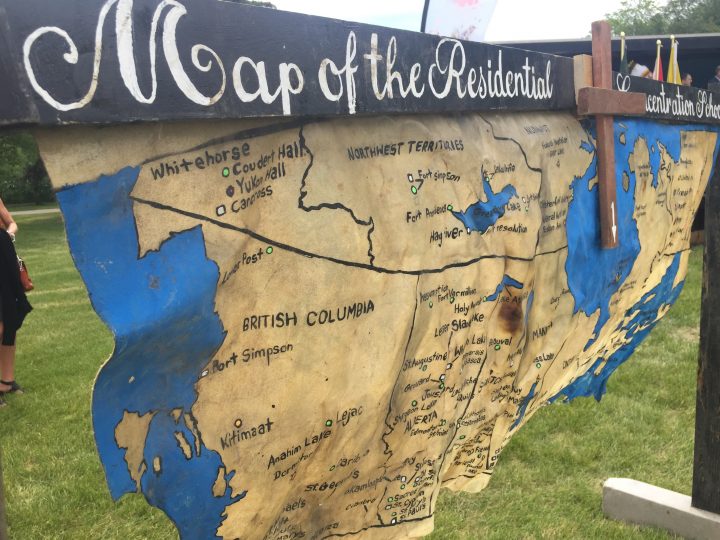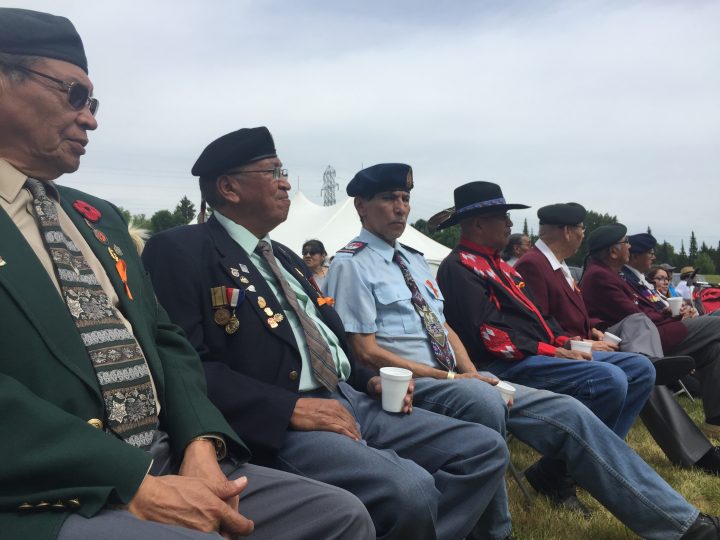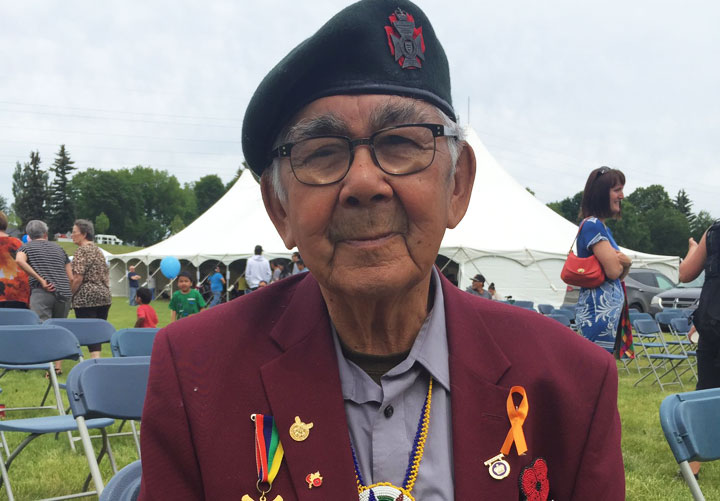On Tuesday, celebrations across the country were held to commemorate aboriginal culture.

Every year, National Aboriginal Day falls on June 21 and was formally proclaimed in 1996 to acknowledge the heritage and achievements of First Nations, Inuit and Métis people.
READ MORE: Milestones celebrated at kickoff to Aboriginal Awareness Week
In Saskatoon, a number of events were held in honour of the nationally recognized day including one at Victoria Park. Hosted by the Saskatoon Indian Métis Friendship Centre, hundreds gathered to celebrate an event that means so much to so many.
“National Aboriginal Day means to me – a celebration of indigenous cultures, being proud of who you are but more than that for me it’s celebrating and diversity,” said Shirley Isbister, president of the Central Urban Métis Federation Inc.
READ MORE: Regina marks National Aboriginal Day with city-wide celebrations
Another official recognized as part of Tuesday’s ceremony was Insp. Mitch Yuzdepski of the Saskatoon Police Service.
“We come here as settlers, as newcomers, new Canadians come here too,” he said.
“I think it’s important for us to recognize the rich history of our First Nations people.”
This year marks the 20th anniversary of National Aboriginal Day. It also falls within a “Year of Reconciliation” for the City of Saskatoon that began on July 1 of last year.

Get breaking National news
“It’s just not for 2016, it’s 17, 18, it’s forever that we need to live together and we need to work together for a common goal and that’s the betterment of our children, our grandchildren and well into the future,” said Mayor Donald Atchison.
Judge David Arnot of Saskatchewan Human Rights Commission weighed in on what reconciliation means going forward not only for Saskatoon, Saskatchewan but the entire country.
“We need harmony in this country and it has to come through reconciliation and the only way you get reconciliation is if you have respect,” he said.
“Respect is generated through empathy and empathy is generated by understanding.”
Understanding through knowledge and education, something Elder Edward Baldhead knows a thing or two about. He visits classrooms shedding light on some of the country’s darkest history as a residential school survivor.
“I got kicked out because I was talking Cree to them all the time and my grandma used to tell me you can’t take another way of talking.”
READ MORE: Place D’Armes receives native American name to celebrate National Aboriginal Day
Over the course of his 88 years, Baldhead said he has seen a lot of positive change. While we as a country may still have a long way to go, the event also provided hope.
“People sit together, they hear the music, the dancing, they get up, we eat together and that’s how you get to know people,” said Isbister
“I think that when people feel welcomed and that you’re open, it doesn’t matter what culture you’re from or what colour you are.”









Comments
Comments closed.
Due to the sensitive and/or legal subject matter of some of the content on globalnews.ca, we reserve the ability to disable comments from time to time.
Please see our Commenting Policy for more.